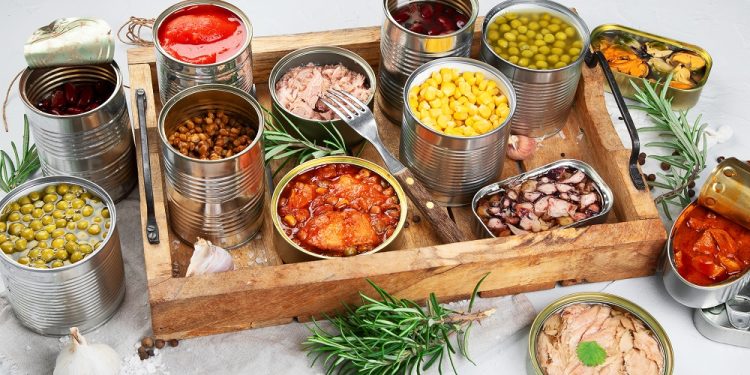
Canned Food Month
National Canned Food Month is in February, and that means we all have to spend 28 days (or 29 days during a Leap Year) thinking about canned food items. This month serves a dual purpose. Its first purpose is to educate people about the value of canned foods and to encourage them to keep their pantries stocked with essential canned food items.
The second purpose of this month is to encourage people to donate excess canned foods to food pantries. Despite popular misconceptions, canned foods can deliver nutritious food to a person’s diet in a very economical way.
The History of National Canned Food Month
National Canned Food Month was created in 1987 by the Canned Food Information Council. Why did they create this observance month? They did so to raise awareness about the value of canned food items and to dispel some of the myths that surround canned foods.
One of these myths is that canned fruits and vegetables aren’t as nutritious as fresh or frozen foods, and that’s simply not true. Canned fruits and veggies can be just as nutritious. That’s because minerals, fat-soluble vitamins, protein, carbohydrates, and fats remain relatively unchanged during the canning process.
Some Interesting Facts About Canned Foods
Okay, before we continue with our discussion about National Canned Food Month, let’s take a few moments to go over some of the interesting facts we’ve recently learned about canned goods. We’ve listed these facts below.
- Studies have shown that canned tomatoes have more lycopene and B vitamins than fresh tomatoes.
- Canned foods can maintain their nutritional value for up to a year, while fresh vegetables begin to lose their nutritional value within 72 hours.
- Canned green beans are up to 500% cheaper than fresh green beans.
- Food cans are recycled 2.5 times more than other packaging options.
Observing National Canned Food Month
During this month, people can do a variety of things. First, they can ensure that they donate canned goods to food pantries. Second, they can take stock of what canned food items they have and make sure that they’re properly rotating them. Third, they can replenish their stockpile of essential canned food items.
Some of the canned foods that people might want to keep in their pantry at all times include chicken broth, beans, whole tomatoes, tomato paste, corn, peas, green beans, and tuna.
If these items are kept in stock, they can give the home cook a wide variety of lunch and dinner options. While people are whipping up great dinners with their canned goods, they can let everyone know about this month using the hashtag #NationalCannedFoodMonth on social media.








